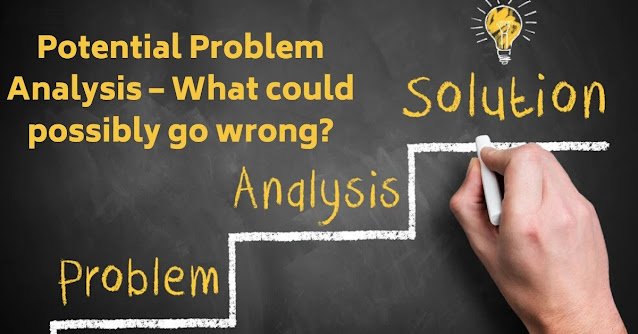Many service management disciplines experience risk as, in reality, flawless information is beyond the realm of imagination – quite a bit of what we do will include a level of vulnerability.
Regardless of whether we are executing changes to complex frameworks, concocting catastrophe situations for progression arranging, endeavoring to react to a significant occurrence with deficient data, or foreseeing innovation headways, we are anticipating the future with different degrees of certainty.
ITIL and PRINCE2 have a best practice stablemate as M_o_R (Management of Risk, and an irritatingly organized abbreviation… ) and the University has direction on hazard the executives, notwithstanding, the Kepner-Tregoe approach is in congruity with these.
It would be ideal if you note that hazard examination applies similarly to circumstances and dangers – in some cases, an alluring result isn't ensured and should be made sure about, similarly as danger may need to keep away from.
1. Identify potential problems
We have to ask what may turn out badly with our expected game-plan, or what opportunity may emerge – however we'll kindly quit copying the great at this point! M_o_R would demand that all the possibilities are recorded and at exactly that point trimmed down to those values growing further (in light of effect, likelihood, and nearness), yet frequently for our operational purposes, a thorough posting of dangers isn't required. Instruments, for example, PESTLE investigation (and expansions) can help guarantee that nothing is neglected.
2. Identify likely causes
Every one of the risks (possible issues) will have causes – note the plural, as there are probably going to be various joining or contributory reasons for something turning out badly. Recognizing the numerous reasons for the potential issue gives various focuses on the following stage. A fire requires fuel, oxygen, and a wellspring of start, however expelling just one will forestall it.
3. Take preventative action
Having distinguished the reasons for the possible issue, we would now be able to plan to maintain a strategic distance from or decrease them. Dangers that can't be stayed away from totally can in any case have the effect decreased before they occur (for example try not to tie up your assets in one place!). M_o_R incorporates other hazard reaction alternatives that are less operationally valuable – "risk transfer" (this isn't just avoiding any responsibility, frequently this implies some type of protection), "risk-sharing" (spreading it between more substances). At that point, there's the exemplary "risk acceptance".
4. Plan contingent action
Halting the risk being acknowledged might be the most alluring alternative, however, it may not be conceivable or financially savvy. Once in awhile, we need to trust that it won't occur, yet get ready for it on the off chance that it does… This might be the great rollback plan, or it might be some type of mitigation. Mitigation can be viewed as an effect decrease activity, afterward. Each emergency treatment reaction or fire clearing plan is an unforeseen activity – the University may mean to forestall staff injury and flames, however, it would be careless to overlook such alternate courses of action in the event that the anticipation comes up short!
5. Set triggers
While this may be viewed as a feature of the possibility of arranging, it's frequently disregarded, so worth drawing out independently – by what means will we realize that the possible moves should be made? When will the rollback be activated? Choosing the triggers ahead of time will spare the issue of the "we should proceed" versus "we ought to return" contention in the warmth of the emergency. As usual, SMART triggers will be simpler than dubious articulations.
Source: novelvista.com






0 comments:
Post a Comment